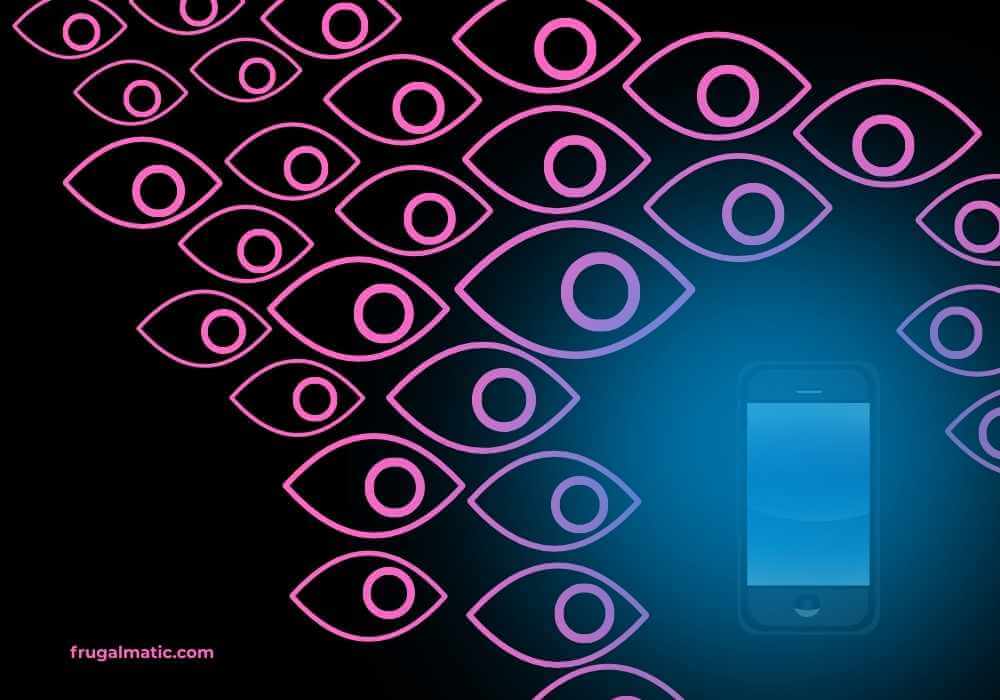This post was last updated on July 20th, 2025 at 01:45 pm
Since the emergence of the first minimalist phones, plenty of people have misunderstood their purpose and value. They struggle with the idea of having to pay hundreds of dollars for a device designed to be a barrier between them and the internet. For this group, it makes no sense to shell out money to be less connected.
But this is a case of less being more, and what’s at stake is your attention. Smartphones tend to drain it. Minimalist phones tend to shield it. Their value comes not so much from what they do (call and text) but from what they don’t do (provide unrestricted access to the internet).
This battle for our attention takes place within what’s called the “attention economy.” Our attention is a finite resource, a topic that Chris Hayes covers in his book, “The Sirens’ Call.” Hayes works as a cable TV news host, and so he’s well aware of the tactics deployed to grab and hold our attention. Given that his livelihood depends on the attention economy, Hayes is a curious person to lament its takeover. On the other hand, he understands better than most what’s happening to our attention.
Because our attention is finite (we can only give so much of it), companies compete fiercely to harness it. As Hayes explains it, the media have been competing for people’s attention since before the days of the penny press when newspapers sometimes invented crazy stories to get readers to pick up their product.
What’s different today is the technological extremes used to seize our attention. Algorithms have become the secret sauce of media platforms, allowing companies to customize content for each individual user. The longer these platforms can hold their users’ attention, often through what’s known as “news” feeds, the more money these companies stand to make.
Why the smartphone lifestyle traps many people
The love-hate relationship that many people have with their phones is a function of their phone’s seemingly duplicitous nature. The devices feature both time-wasting platforms and time-saving tools. But believe it or not, those “tools” are actually part of the problem. Companies have not only figured out how to use smartphones to harness users’ attention via algorithms. They’ve also figured out how to make the devices indispensable for performing everyday tasks, from “clipping” digital coupons to processing tickets for sports events and concerts.
Meanwhile, some employers have made smartphones a necessary part of performing jobs. In the attention economy, if you lack a smartphone, you risk being excluded. Smartphones have become “digital gates” through which you must pass to access products, services, or jobs.
Digital gates are everywhere. Perhaps the most famous examples are Uber and Lyft. You can’t hail these taxis without using the companies’ apps. It seems like I’m discovering a new digital gate, some more daunting than others, every few weeks. Most recently, I visited new pickleball courts in my community and was stunned to discover a sign that encouraged people to “check in” through an app. The sign included a QR code and, sure enough, I saw players on their phones “checking in.” The analog way of joining a game involved simply hanging your paddle on a rack to show that you wanted to play. But at these new courts, a digital gate was created to try to force players to use a particular app as a condition of playing. Fortunately, many people including myself ignore this new system, and we still hang up our paddles to show that we want to play.
Some digital gates are trickier to sidestep than others, which is one reason why some people feel helplessly tethered to their smartphones. For one thing, they are addicted to social media and entertainment websites. For another, their daily routines have become a collection of digital gates, some of which they voluntarily created (such as turning their phone into a garage door opener), likely because they thought these gates would make their life more convenient. Even if these folks tried to quit social media, they’d be constantly tempted to return to it because of the large number of tasks linked to their smartphones.
When digital gates become digital enclosures
Amazingly, tech companies believe they haven’t reached the limits of their ability to capture people’s attention. The creation of virtual/augmented reality headsets is a bold attempt to take the attention economy to its most mind-boggling extreme. Thankfully, so far, it hasn’t worked. “Much of the initial visceral revulsion people felt toward the product was a reaction at a deep level to the sheer alienating scope of this ambition,” Hayes writes about Apple’s Vision Pro. But rest assured, companies will continue to explore ways to corral people permanently into a world that acts not as a digital gate but as a digital enclosure, completely surrounding its members.
I’d feel better about our chances for avoiding this type of dystopian future if some guardrails were already in place to limit companies’ ability to access and hold our attention. Unfortunately, there are very few, and there’s no reason to think such guardrails will be developed any time soon. This situation leaves us in a position of having to safeguard our own attention, at the individual level. The easiest and most obvious way to impose these limits is to limit companies’ ability to reach us.
The surest way to protect your attention from the Sirens’ call
When I think of paying money to prevent myself from accessing the internet, I’m reminded of the old White Pages. You remember landlines, right? Back in the day, your phone number and address would be published in the White Pages free of charge. This allowed anybody to reach you at any time. But if you wanted to be removed from the White Pages, you had to pay. Yes, you had to pay for the privilege of making yourself less accessible.
That’s essentially what you’re doing when you invest in a minimalist phone. When you buy one of these phones, it is a humble acknowledgement that you lack the ability and/or willpower to resist what Hayes might describe as the “Siren’s call.” He’s referring to the ancient story of Odysseus, who had to be tied to the mast of his ship to avoid becoming captivated by the irresistible songs of the Sirens. Anyone caught by their lovely voices became spellbound and continued listening until they perished.
The thing that perishes with a smartphone is our attention. It becomes the captive of social media platforms, video games, gambling websites, and all their related notifications. Buying a phone that doesn’t access the internet (except for tools like the weather and GPS) is like being tied to the mast of a ship. With a minimalist device in hand, you’re less likely to go overboard.
This is where critics of the minimalist phone lifestyle would argue that, while it sounds well intended, these devices are impractical for many people. People become tethered to their phones not merely because they lack the willpower to put them down but because they need them to live (to navigate through those darn digital gates). This is obviously true for many people, though perhaps fewer people than what some critics assume. The extent to which one feels tethered to their smartphone is a result of the many choices that they made over time. The good news is that someone who chooses to become tethered is free to unwind those previous decisions that caused their tethering, as painful as the unwinding process might be.
Admittedly, the price to be paid for being less connected (or untethered) is rising. As more digital gates are erected and as companies continue to perfect their attention-seizing algorithms, functioning outside these digitally constructed worlds is likely to become a greater challenge. AI technologies may further accelerate this digital gating process.
Why life without a smartphone is becoming a luxury
So far, I haven’t allowed digital gates to stop me. I was once a bit embarrassed to admit it but am now proud to say I’ve never owned a smartphone. How much longer can I hold out? I’m not sure, but for now I will continue to enjoy living in this luxurious state. And it is a luxury, at least among middle class Americans.
Up until recently, the only people who didn’t use a smartphone were considered either Luddites or too poor to keep up with the times. But this has changed. As the poor become as well connected as the rich, only the privileged can go about their day-to-day lives without needing to use a smartphone.
It is a luxury to not have a smartphone if you define a luxury as something that very few other people have the ability or wherewithal to obtain. Of course, this privileged group cannot completely escape computers. It will always use them, but what will set them apart is their knack for being able to mostly operate outside the algorithms driving the attention economy. The privileged will be in control of their attention and will be able to conserve it for the people and things that truly matter to them.
The question becomes: Can you afford the price to be less connected? I wrote a post a few years ago about what it takes to give up your smartphone. Feel free to read it to help you determine whether you’re able to make the leap to smartphone-free living. I will level with you. It’s not easy to do. But it’s definitely worth it.

